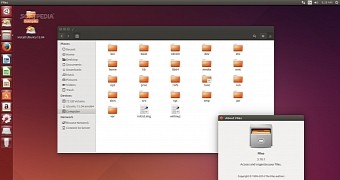Martin Pitt, a renowned Ubuntu and Debian developer, came with the proposal to enable stateless persistent network interface names in the upcoming versions of the Ubuntu Linux and Debian GNU/Linux operating systems.
According to Mr. Pitt, it appears that the problem lies in the automatic detection of network interfaces within the Linux kernel. As such, network interfaces are detected in an unstable and unpredictable order. However, is they want to connect to a certain network interface in ifupdown or networkd, users will need to identify it first using a stable name.
"The general schema for this is to have an udev rule which does some matches to identify a particular interface, and assings a NAME="foo" to it," says Martin Pitt in an email to the Ubuntu mailinglist. "Interfaces with an explicit NAME= get called just like this, and others just get a kernel driver default, usually ethN, wlanN, or sometimes others (some wifi drivers have their own naming schemas)."
Sever solutions appeared over the years: mac, biosdevname, and ifnames
Apparently, several solutions are available for this problem, including an installation of an udev rule in /lib/udev/rules.d/75-persistent-net-generator.rules that creates a MAC address at first boot and writes it to /etc/udev/rules.d/70-persistent-net.rules, which is currently used by default in Ubuntu and applies to most hardware components.
Other solutions include biosdevname, a package that reads port or index numbers and slot names from the BIOS and writes them to /lib/udev/rules.d/71-biosdevname.rules, and ifnames, a persistent name generator that automatically checks the BIOS and/or firmware for index numbers or slot names, similar to biosdevname.
However, the difference between ifnames and biosdevname is that the latter falls back to slot names, such as PCI numbers, and then to the MAC address and writes to /lib/udev/rules.d/80-net-setup-link.rules. All of these solutions can be combined, and Martin Pitt proposes to replace the first solution that is now used by default with the ifnames one.
If a new solution is implemented, a lot of networking issues will be resolved in Ubuntu, especially the cloud version. In addition, it will provide stable network interface names for all new Ubuntu installations, and will resolve many other problems related to system-image and more.

 14 DAY TRIAL //
14 DAY TRIAL //